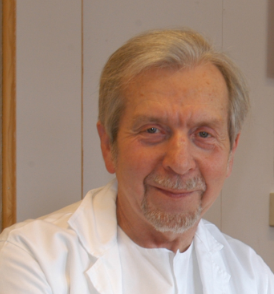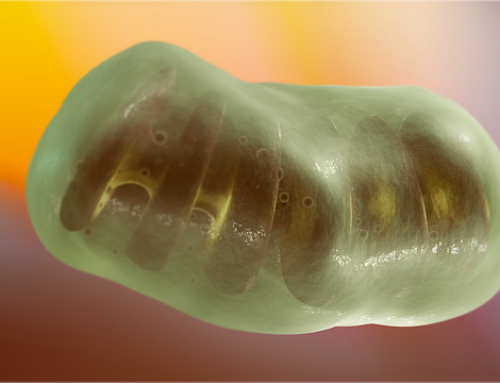Aging and age-related mitochondrial dysfunction are closely linked to the increased risk of heart disease. This subject has been extensively reviewed in a recent article by Mone et al [2024]. The authors noted, “as research in this field continues to evolve, the prospect of therapeutic strategies aimed at preserving mitochondrial fitness and promoting cardiovascular health in aging populations becomes increasingly promising.” However, in this regard, one issue that the authors did not discuss is the role of nutritional supplementation in achieving this aim, in particular the combination of supplementary Coenzyme Q10 and selenium as used in the Kisel-10 clinical study.

Dr. Jan Aaseth, Norwegian physician, professor, and research advisor in endocrinology, internal medicine, and medical biochemistry and member of the KiSel-10 study research team.
In this q10facts article, Professor Jan O. Aaseth juxtaposes the effects of the aging process on the heart muscle with the beneficial anti-aging effects of combined Coenzyme Q10 and selenium supplementation. Since 2015, Prof. Aaseth has been closely involved in the analysis of the KiSel-10 study outcomes [Alehagen & Aaseth 2015; Aaseth, Alexander & Alehagen 2021].
In the KiSel-10 study enrolling 443 community living citizens aged 70-88 years, Prof. Urban Alehagen and a team of researchers investigated the effect of a combination of CoQ10 capsules and high-selenium yeast tablets on heart disease mortality, heart function measured by echocardiograms, and blood concentrations of cardiac natriuretic peptides (the gold standard biomarkers of heart failure) [Alehagen 2013].
Aging and altered mitochondrial dynamics
As we get older, our bodies undergo altered mitochondrial dynamics. Mitochondrial dysfunction leads to reduced cellular energy production, increased oxidative stress, increased systemic inflammation, and impaired mitophagy [Mone 2024]. Note: Mitophagy refers to the removal of damaged bits of mitochondria from the cells before cell death sets in.
Consequently, we need lifestyle changes that will improve mitochondrial function and will strengthen our heart muscle. In this respect, diet and exercise come to mind. Supplementation with Coenzyme Q10 and selenium is another good strategy. For one thing, the cells of elderly individuals produce less and less Coenzyme Q10 with increasing age. The CoQ10 content of the heart muscle of a man of 80 years is likely to be less than half the CoQ10 content of a man of 20 years [Kalén 1989]. Similarly, elderly individuals living in selenium-poor regions like Sweden have a relatively high cardiovascular mortality risk [Alehagen 2016].
Mitochondria and ATP energy generation and heart function
The electron transport chain in the mitochondria generates 80%-90% of ATP in our cells and tissues. Accordingly, age-related mitochondrial dysfunction detracts from the ATP production that we need for biological functions including heart function.
In the analysis of the KiSel-10 study outcomes, the researchers observed significantly lower plasma NT-proBNP concentrations in the active treatment group than in the placebo group 24 months into the study and, again, more pronounced at 48 months [Alehagen 2013]. Note: higher circulating levels of NT-proBNP indicate that the heart is having to work harder to pump blood.
When the KiSel-10 study researchers analyzed changes in heart function according to echocardiography, they found a significantly better heart function score in the active treatment group than in the placebo group [Alehagen 2013].
Mitochondria and oxidative stress and inflammation in the aging heart
In the aging heart, the mitochondria are a significant source of oxidative stress, defined as an imbalance between the activity of harmful oxygen free radical species and the protective capacity of antioxidants (such as vitamin E and Coenzyme Q10). Excessive oxidative stress can lead to the development and progression of heart failure.
Similarly, in aging individuals, mitochondria-generated oxygen free radical species contribute to chronic vascular inflammation. These systemic inflammatory processes are factors in the development of heart failure, peripheral arterial disease, stroke, and vascular cognitive impairment [Mone 2024].
In the KiSel-10 study, the researchers found significantly reduced circulating levels of biomarkers for oxidative stress and systemic inflammation in the active treatment group. Structural equation modeling revealed that the reduction of oxidative stress and chronic inflammation were first-order factors in the improvement of clinical effects: improved heart function, reduced cardiovascular mortality, fewer days in hospital [Alehagen 2022].
Mitochondria and Sirtuin SIRT1
SIRT1 is a member of the sirtuin family of signaling proteins, which have key roles in a number of cellular processes, including energy generation. Properly regulated SIRT1 levels are protective of the heart muscle [Mone 2024].
In a sub-study, the KiSel-10 research team reported that the combined Coenzyme Q10 and selenium supplementation had regulatory effects on numerous microRNAs, including some microRNAs that target SIRT1 mRNA [Alehagen 2017]. In a second sub-study, the researchers reported that four years of daily combined CoQ10 and selenium supplementation was significantly associated with increases in circulating SIRT1 concentrations. In the placebo group, the SIRT1 concentrations declined significantly over the four-year period [Opstad 2023].
The increased SIRT1 concentrations in the active treatment group were significantly associated with reduced cardiovascular mortality. The researchers suggested that the increased concentrations of SIRT1 acted to prevent vascular ageing [Opstad 2023].
Conclusion: Coenzyme Q10 and selenium for heart health
Aging increases the risk of mitochondrial dysfunction and heart disease.
Supplementation with Coenzyme Q10 and selenium can help to preserve mitochondrial fitness and to promote good heart health in aging individuals.
The absorption and bioavailability of CoQ10 supplements varies considerably. The variability is related primarily to the formulation of the CoQ10 preparation. It is important to purchase a CoQ10 supplement with documented absorption and efficacy [Mantle & Dybring 2020].
It is also of importance to note that the promising results obtained from the Kisel-10 study only apply to the specific Coenzyme Q10 and selenium supplements used in the study, and not to these supplements generally available.
Sources
Aaseth J, Alexander J, & Alehagen U. Coenzyme Q10 supplementation–In ageing and disease. Mechanisms of ageing and development. 2021;197: 111521.
Alehagen U, Johansson P, Björnstedt M, Rosén A. Cardiovascular mortality and N-terminal-proBNP reduced after combined selenium and coenzyme Q10 supplementation: A 5-year prospective randomized double-blind placebo-controlled trial. Int J Cardiol. 2013;167:1860-1866.
Alehagen U, Aaseth J. Selenium and coenzyme Q10 interrelationship in cardiovascular diseases – A clinician s point of view. J Trace Elem Med Biol. 2015;31:157-62.
Alehagen U, Johansson P, Björnstedt M, Rosén A. Relatively high mortality risk in elderly Swedish subjects with low selenium status. Eur J Clin Nutr. 2016;70:91-6.
Alehagen U, Johansson P, Aaseth J, Alexander J, Wågsäter D. Significant changes in circulating microRNA by dietary supplementation of selenium and coenzyme Q10 in healthy elderly males. A subgroup analysis of a prospective randomized double-blind placebo-controlled trial among elderly Swedish citizens. PLoS One. 2017 Apr 27;12(4):e0174880.
Alehagen U, Johansson P, Svensson E, Aaseth J, Alexander J. Improved cardiovascular health by supplementation with selenium and coenzyme Q10: applying structural equation modelling to clinical outcomes and biomarkers to explore underlying mechanisms in a prospective randomized double-blind placebo-controlled intervention project in Sweden. Eur J Nutr. 2022 Sep;61(6):3135-3148.
Kalén A, Appelkvist EL, Dallner G. Age-related changes in the lipid compositions of rat and human tissues. Lipids. 1989 Jul;24(7):579-84.
Mantle D, Dybring A. Bioavailability of Coenzyme Q10: an overview of the absorption process and subsequent metabolism. Antioxidants (Basel). 2020 May 5;9(5):386.
Mone P, Agyapong ED, Morciano G, Jankauskas SS, De Luca A, Varzideh F, Pinton P, Santulli G. Dysfunctional mitochondria elicit bioenergetic decline in the aged heart. J Cardiovasc Aging 2024;4:13.
Opstad TB, Alexander J, Aaseth J, Larsson A, Seljeflot I, Alehagen U. Increased SIRT1 concentration following four years of selenium and Q10 intervention associated with reduced cardiovascular mortality at 10-year follow-up-sub-study of a previous prospective double-blind placebo-controlled randomized clinical trial. Antioxidants (Basel). 2023 Mar 21;12(3):759.
The information summarized in this review article is not intended as medical advice. It should not be used as such.










Leave A Comment